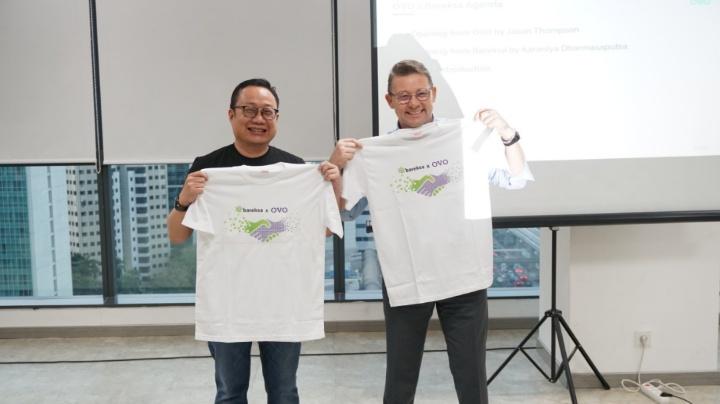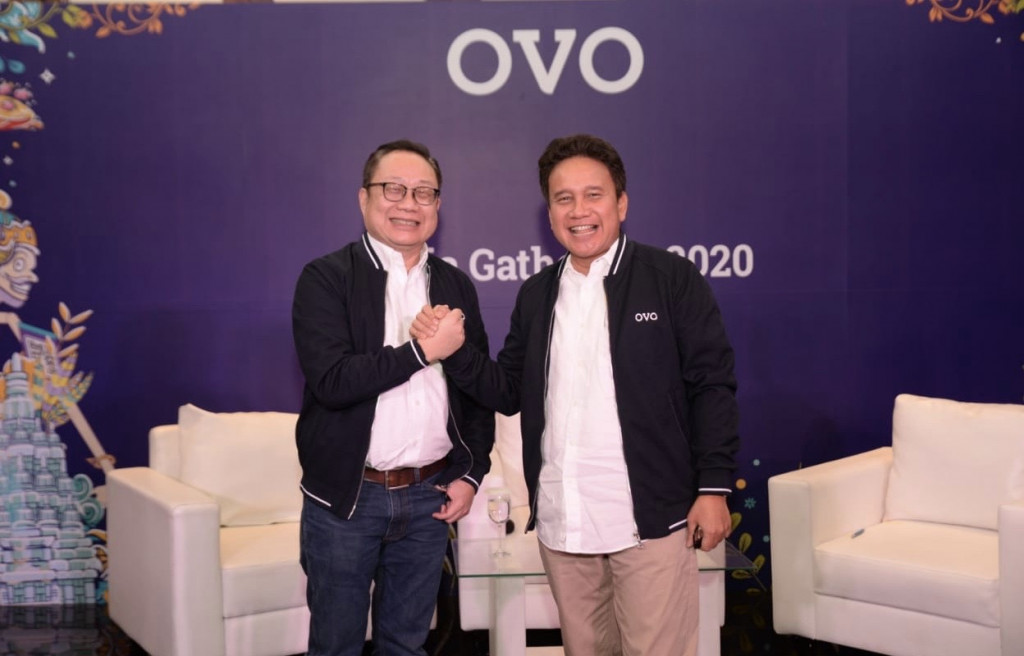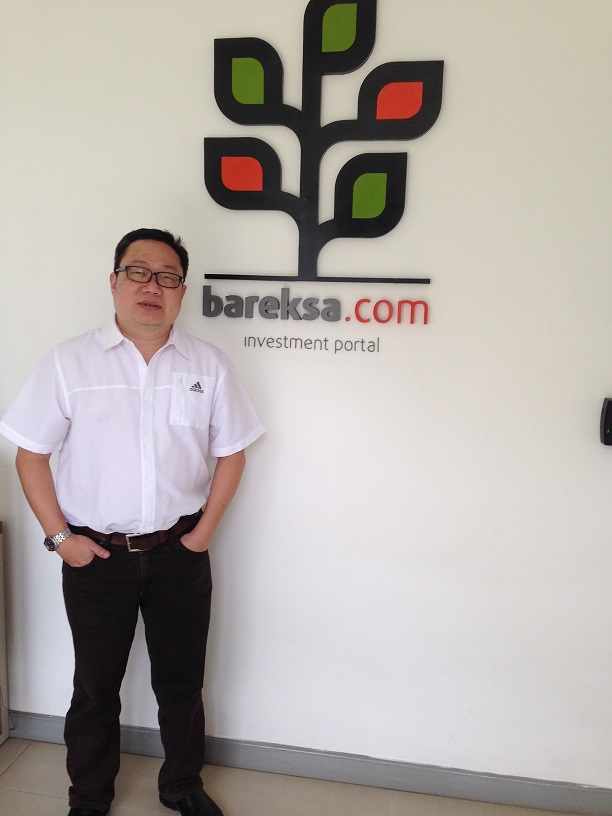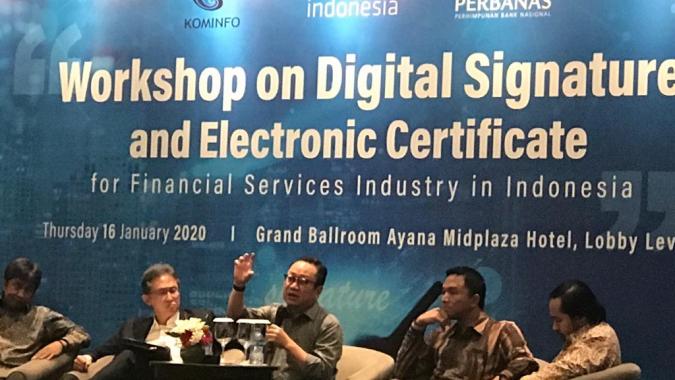Karaniya Dharmasaputra: The Power of Digital to Democratize Investment Access for All
The essence of digitization is to create equal access for all
This article is a part of DailySocial’s Mastermind Series, featuring innovators and leaders in Indonesia’s tech industry sharing their stories and point of view.
Karaniya Dharmasaputra is the Co-Founder and CEO of Bareksa, the first integrated online mutual fund marketplace in Indonesia. Currently, he also serves as the President of OVO, one of the payment platforms that already accepted in both the O2O retail store and e-commerce platforms.
Before entering the financial technology industry, Karaniya had held various positions in well-known media companies. Some of those are KOMPAS TV, KapanLagi Youniverse. Liputan6.com, The Jakarta Post, VIVA, and TEMPO.
His dedication to journalism has granted him a Master's degree in Public Policy through a Fullbright scholarship program at George Washington University, Washington DC, United States. This is where he had an eye-opening experience with the digital industry. He believes the digital power to democratize access for all.
DailySocial team had quite an insightful discussion with him, and here is to begin with.
You are currently serving as the Co-founder and CEO of Bareksa, also the President of OVO. How challenging it is to manage more than one position?
Nowadays, I feel like my life is governed by my calendar, it's like a competition going on in my schedule. Not to sound so busy, but it is still part of the job. Fortunately, Ovo and Bareksa share some similar objectives and we have quite a strong synergy. Therefore, it is not a fully separated business and we've crossed some path along the way. Last year, Ovo has invested in Bareksa and since then, our synergy is getting stronger. Recently, OVO also expands to financial services and investment, and probably more to go.
How did the story begin? From media companies to financial technology
Since I was in junior high, I had quite an odd hobby to read news from daily newspapers, magazines, and television. I used to have a dream to be either an architect or a journalist. I finally accepted to study a communication major in Gadjah Mada University (UGM). Sometimes I would go to some kind of activist movement, just to get more critical experience as a college student.
I started my career as a graphic designer and illustrator. At the same time, I also enjoy public affairs. Not to sound very idealist, but I always thought living is not only about making money. Have some added value in life, experience, be more practical for other people too. My first attempt in a media company is when I had an interview with Tempo and become a journalist in politics and business.
Another journey started when the US Embassy offers me a Fullbright scholarship. I wasn't thinking to continue my study, hence I finished my master's degree in public policy from George Washington University. That is the turning point of my life.
If I have to divide, there are three degrees of digital waves in Indonesia. First, it hit our media industry. Then, the rise of e-commerce. Finally, it comes to the financial technology. I was sent off to the US in 2004, the first wave is about to arrive in the media industry. Back then, there wasn't any multimedia journalism.
My first digital experience in the US was quite astonishing. I didn't come from a silver spoon family, my scholarship barely covered my expenses with a wife and three children. Every day, I watch the news, and really amazed at how the digital world can change and get rid of any limitation in the conventional media.
One day I saw a scandal was told in a very comprehensive way where you can dig as deep, using multimedia and hyperlink. Everything is connected and very interactive. This is the real power of the digital world. Not to mention how e-bay and amazon have really helped me saving money. It was an eye-opening experience for me. Then, I decided to make it into the digital world.
Coming back to Indonesia, everything was different again. I offer to create something digital for my current company back then, but they turn down the offer telling me to focus more on the core. It was when I realize that it is time to start my digital venture. I look for investors and created Viva.co.id. We focus on educating Indonesian people with digital service, e-commerce, and stuff. It was when Bukalapak and Tokopedia were probably still on their seed.

Six years ago, what encourages you to started Bareksa and enter the financial technology sector?
In terms of the deed, Bareksa was founded in 2013. We started with a very small team in conceptualizing the business plan. The platform was launched in 2015, it was more like a space for information and data. Back in 2014-2015, the tech company was not allowed to sell mutual funds and investment products, we have to collaborate with a security company.
In my "media" life, I have covered some financial business and investment news. I always see our [Indonesia] financial world is very elitist. Public access is not available or simply difficult. I was starting to invest but in a conventional way, it was a very long user experience. Fintech wasn't even born. However, I really believe in the digital wave that will soon arrive in the financial sector. With some connections in the financing business and experience in building a digital company, Bareksa has become the first licensed fintech by OJK as an online selling agent in 2016.
I present the problems in our mutual fund industry, the low penetration in terms of supply and demand. There are many local asset management companies have difficulty with distribution channel as it still depends on banking. In terms of demand, it's quite shallow. Instead of saying not to save money at the bank, we want to introduce that there is another secure and stable investment instrument that is very popular in other countries called mutual funds. The thing is, our people weren't quite aware and have no access. This is why I started Bareksa.
In this current state, many startups experiencing great loss even shut down. How do you see this affecting the fintech industry?
Speaking as the President of OVO, I think this pandemic has shown that the digital economy driven by financial technology will grow exponentially. Especially with consumer behavior shifting to digital, not only in e-commerce but also in the fintech sector. Based on OVO's data alone, transactions in e-commerce jumped around 110%-120%, food delivery 15%-20%. Also, the demand for online merchant lending increased by almost 50%.
When the government announced the Covid-19 pandemic as a national disaster, I was quite devastated. I thought, who wants to invest when the economy going down. However, I found something interesting while watching the numbers going. When the ICI drop 38%, Bareksa's AUM only drop 12%. Also, the number of transaction and new users keep increasing. Within only 3-4 weeks after the pandemic announcement, we already hit a rebound. It shows the fact that online investment driven by financial technology is getting more resilient.
In terms of hardships, are you willing to share some challenges along the journey?
I always admire young, persistent, and strong-willed people, they exist among us in the tech industry. The first to the third year of building a venture is the most challenging. I, too, was frustrated for a long time, it is important not to lose hope. Other than the emotional barrier, it is very essential to start a new venture by defining the right business model. Eventually, we must be humble to drop our ego and embrace collaboration opportunities.
You're also a part of the AFTECH association, would you mind sharing what kind of initiative have you and the association do to contribute to the development of the fintech sector in Indonesia?
Fintech is a very regulated industry and the ecosystem is very important. In fact, our financial regulation was still driven by the conventional financial industry. Meanwhile, the regulation will affect the growth of the fintech industry. That is why we think it's important to form this association so we can take collective action to collaborate with the government. Thus, we can have a compatible financial ecosystem for our financial technology demand.
What is your current biggest ambition? Have you thought of something new to do during the WFH situation?
For now, my plate is quite full with OVO and Bareksa. There are still many in our pipelines. Also, we're in the middle of an integration. There's also still much space for synergy. Otherwise, I really hope to realize Indonesia's version of China's iron triangle in our tech industry.
Do you have anything to say regarding the "new normal" era and how it would affect the whole ecosystem?
Actually the pattern has become clearer. There will be many sectors heavily relied on digital technology. I see the digital adoption has become the key factor, not only to survive but also to grow. I think this is why I am very passionate about working in the digital industry. I see great power in digital that could be of use for the government to democratize our economy. Nowadays, SMEs can have an equal opportunity to market their products along with other big players. They can compete at the same level of playing field. It is such a great transformation. How digital companies provide equal access for everyone, not only the big players. I think that is the essence of digitization.
Sign up for our
newsletter




